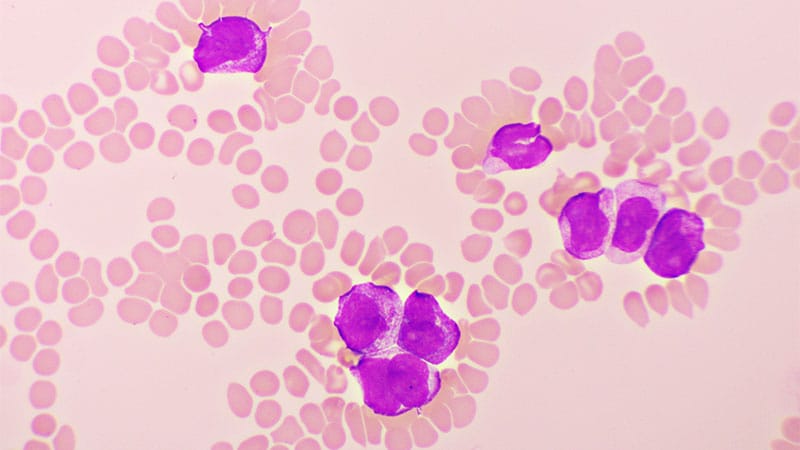NICE has issued a recommendation for gemtuzumab ozogamicin, with daunorubicin and cytarabine, as an option for untreated de novo CD33-positive acute myeloid leukaemia (AML), excluding acute promyelocytic leukaemia, in people 15 years and over.
The treatment is recommended only for patients who start induction therapy when either cytogenetic testing confirms that the disease has favourable, intermediate, or unknown cytogenetics or when the cytogenetic test results are not yet available.
In the open-label, phase 3, randomised controlled ALFA-0701 trial (n=271), treatment with gemtuzumab ozogamicin plus daunorubicin and cytarabine increased median event-free survival (EFS) compared with daunorubicin and cytarabine alone (9.5 months vs 17.3 months; HR 0.56; 95% CI 0.42-0.76; P=0.0002).
Median relapse-free survival (RFS) increased from 11.4 months to 28 months (HR 0.53; 95% CI 0.36-0.76, P=0.0006). Median overall survival (OS) increased from 21.8 months to 27.5 months (HR 0.81; 95% Cl 0.60-1.09; P=0.165). However, the difference between treatment groups did not reach statistical significance.
In patients with favourable or intermediate cytogenetics, the benefit in EFS was 12.2 months vs 22.5 months (HR 0.49; 95% CI 0.33-0.72; P=0.0003). OS increased from 26.0 months to 38.6 months (HR 0.75; 95% CI 0.511-1.091; P=0.1288).
“The most plausible cost-effectiveness estimates for gemtuzumab ozogamicin for people whose disease has favourable, intermediate or unknown cytogenetics (because the cytogenetic test was unsuccessful) are within the range that NICE normally considers an acceptable use of NHS resources,” the NICE appraisal committee stated.



